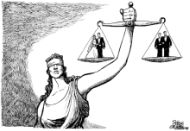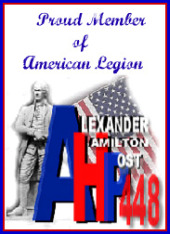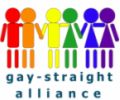 Out of the Pocket
Out of the Pocket
Bill Konigsberg
Dutton Books (Hardback)
ISBN-13-9780525479963
A couple of months ago when the Lambda Literary Foundation’s 21st list of awarded gay books came out, I promised to read some of them and post my personal reviews.
I found one from the LGBT Childrens/Young Adult top picks at my nearby Barnes and Noble: Out of the Pocket by sports writer Bill Konigsberg. I immediately read it, and forgot about it.
Since then, I’ve read and been reading on several other books and posted reviews of a couple of them. Then a couple of days ago, I saw a new posting of the Lambda book list and realized that Konigsberg’s novel had been the top choice in the LGBT Childrens/Young Adult category, and I thought to myself, “I’ve read that book and got it somewhere.” I looked a bit and thought maybe I was mistaken about having read it; then while uncovering a pile of papers on top of my printer, I found it.
Last night, I re-read it, and now wonder why it is the top selection in its category. I must admit, though, I haven’t read the other contenders yet.
What Konigsberg has written (and maybe this is why the book has been ranked 1st) is a “safe” book. The theme is not a new one: it’s the coming out story of a high school guy; in this case, though, it’s the story of a star quarterback of a highly rated football team being somewhat pushed out of the closet.
Konigsberg’s writing is smooth and suits the storyline of his jock main character, Bobby Framington. But whether it was part of the writer’s intent or not, I felt little empathy for Bobby because Bobby shows very little empathy for others. This jock is part of the top click that many high schools have. He and his “sort of” girlfriend have an on-going role-play, in which she is “Annette” and he is “Biff”. In a lot of ways, though, Bobby is a “Biff”; he lives a comfortable life, has party-boy football jock friends, and is supported by school mentors before and throughout his coming out.
Actually, his nemesis, the high school news reporter who outs Bobby, comes across as a more honest and real character, one some readers will identify with in this dialogue:
Finch shrugged. “You jocks have no idea what it’s like to have a bad time.”
“What are you talking about?” I asked, narrowing my eyes at him.
“Bobby, everyone likes you. You think being gay will stop people from liking you? I bet it didn’t. I wrote that article, and for like a day, people came up to me and made me feel like I was something. Then it was over. It was like I didn’t write it at all.”
The laugh came from deep in my gut. “Poor Finch,” I said. “That must be hard for you not being popular.”
It’s clear that Bobby is one of the popular kids, and even though after his outing, a couple of gay students from outside his group try to make a connection, Bobby seems not to really identify with them. Konigsberg’s story would have had a greater appeal had it taken chances with characters outside of Bobby’s “safe” world.
I’m not sure what Konigsberg’s real purpose was in writing this book. On one hand, because of the click in which he has placed his main character, I don’t see that a lot of gay kids who are struggling with their own coming out, especially with the pressures from both inside and out of school, will find someone to identify with. I guess there may be some comfort and guidance for some young gay athletes who might be trying to figure out what coming out might be like, but the fact that Bobby comes out “OK” with every difficulty he encounters will be hard for many young readers’ (athletes or not) to believe.
Despite the story’s problems, I’m sure that school librarians across the country will be able to “stay in the pocket” with this book, because it’s a “safe” gay book for teens. The most intimate the story gets is a kiss, and yes, that’s one kiss, and even though Bobby manages to get a boyfriend almost before he has come out, the relationship seems much more like a friendship than romance.
When it comes to teen coming out stories that deal with sports, for my two cents, these books are better reads:
- Rainbow Boys (and the other books in the series)–by Alex Sanchez (basketball and swimming)
- Pins–by Jim Provenzano (wrestling)
- Clay’s Way–by Blair Mastbaum (surfing)
Filed under: Gay-themed Book Reviews, It's What I Like, Politics and Gay Topics | Tagged: Alex Sanchez, Barnes and Noble, Bill Konigsberg, Blair Mastbaum, Clay's Way, coming out, gay, gay-themed books, GLBT, high school basketball, high school quarterback, Jim Provenzano, Lambda Literary Foundation, lgbt, Pins, Rainbow Boys, surfing, teen readers, wrestling, young adult books | 1 Comment »




 http://jointheimpact.com
http://jointheimpact.com






